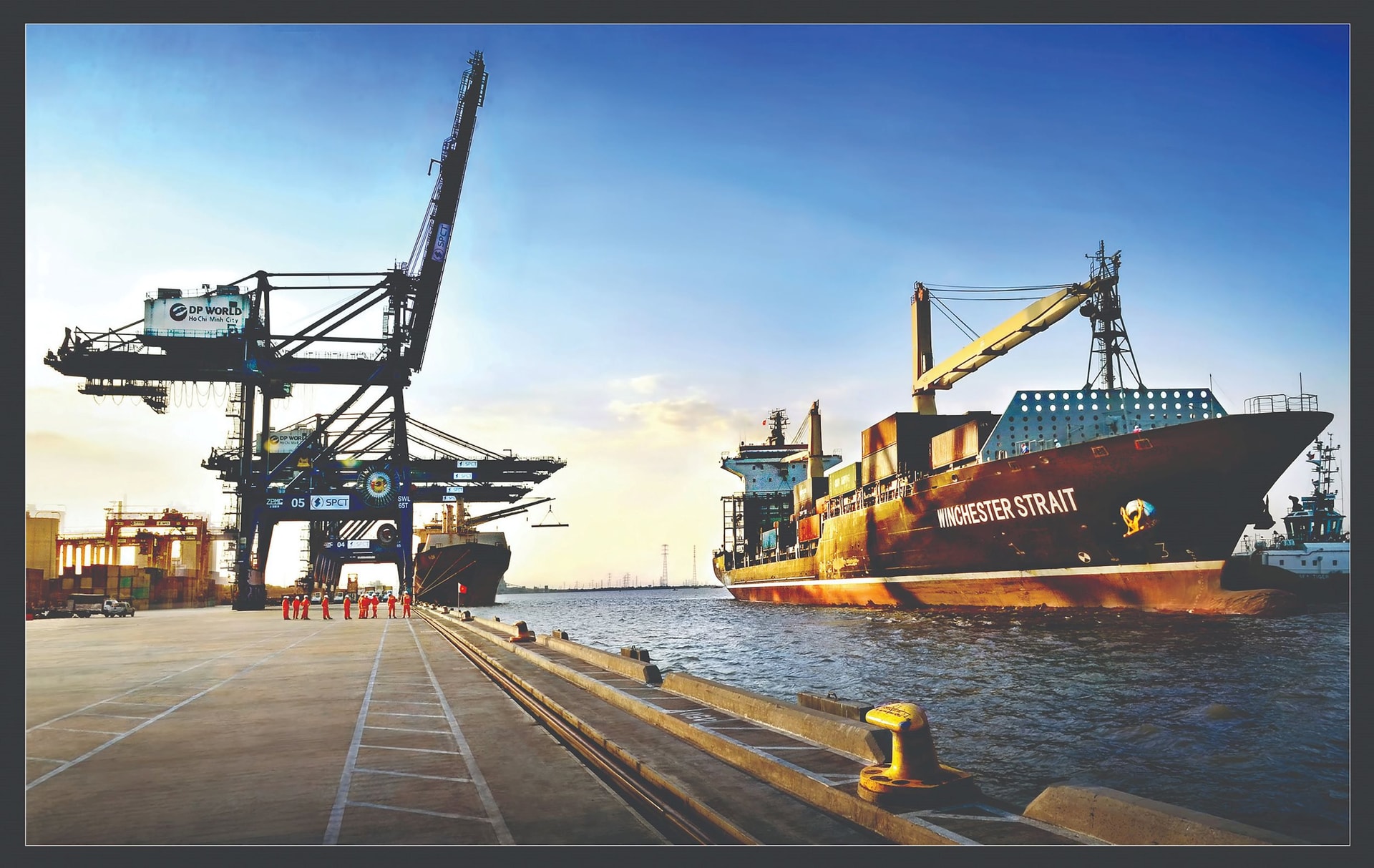The logistics "bloodstream" must always "circulate" in the economy
English - Ngày đăng : 14:19, 17/07/2023
Therefore, after the pandemic, the government needs to implement new policies to develop the logistics sector to its full potential in the upcoming period.
Disrupted lives and struggling businesses due to paralyzed logistics sector

Recalling the period of the Covid-19 pandemic, the government implemented rigorous measures to ensure disease prevention, such as restrictions on travel and movement, which greatly impacted the logistics industry. The most evident impact was felt in the lives of millions of people due to food shortages. Consumer goods and essential food items couldn't reach isolated provinces and cities. Transport activities from controlled outbreak areas were tightly restricted, making it impossible to supply essential goods according to demand. However, during the pandemic, thanks to the strong development of e-commerce and e-logistics, most essential goods were still delivered to people through contactless transactions and technology usage. It must be acknowledged that e-commerce and e-logistics have made significant contributions to stabilizing people's lives during the pandemic by providing fast and convenient deliveries to consumers.
For import-export businesses, the disrupted supply chains have hindered the importation of raw materials and goods, or the exportation of products to international markets. If importation or exportation is possible, the product costs are significantly higher due to the international sea freight rates increasing two to three times compared to pre-pandemic levels, thereby reducing the competitive advantage of businesses. Finding logistics partners to support import-export activities during this period is extremely challenging. Businesses with a team of logistics experts or a well-established subcontracting system will have an advantage over those that have traditionally paid less attention to the logistics aspect.
In addition, domestic manufacturing businesses are unable to distribute products to various regions within the country due to pandemic prevention regulations and isolation measures between localities. Businesses with a nationwide distribution system, warehouses, and evenly distributed factories will have a greater advantage.
In the healthcare sector, the transportation and storage of medical equipment to serve disease prevention and control also face difficulties due to disrupted logistics services. Logistics activities are restricted due to pandemic prevention regulations and additional cumbersome administrative procedures. In this period, the role of logistics is extremely important in supporting the healthcare industry to timely meet the demand for medical equipment, pharmaceuticals, and medicines to fight the pandemic and save lives.
Not letting the supply chain break

It can be said that the role of the logistics industry during the pandemic has been clearly demonstrated, impacting all aspects of life, society, and the economy. Therefore, there is a need for appropriate policies to further elevate the logistics service sector's importance in the national economy. Businesses also need to draw lessons from their management experiences to avoid confusion and passivity in their operations.
The first issue in policy implementation is that in any unforeseen circumstances such as natural disasters, disease outbreaks, or wars, it is essential to ensure the continuity of the supply chain in general and logistics activities in particular. Logistics operations are likened to the bloodstream nourishing the body, and they must circulate within the economy. During the Covid-19 pandemic, certain localities enacted policies with local interests, resulting in situations where markets were closed and logistics activities came to a halt, leading to extreme difficulties in people's lives due to food and essential goods shortages. These local policies also caused significant damage to the economy by hindering production and import-export businesses from importing raw materials or distributing products. Therefore, when issuing policies, the competent authorities must exercise caution and ensure the safety and smoothness of logistics operations.
The state needs a specific strategy to develop e-commerce and e-logistics because, in uncontrollable situations like the recent pandemic, e-commerce and e-logistics played a crucial role in facilitating the circulation of goods and stabilizing people's lives. Furthermore, e-commerce and e-logistics are the current development trends in the logistics industry worldwide. However, their growth requires significant investments in technology and financial support for our relatively weak logistics sector.
From the Covid-19 pandemic, we can see the crucial role of logistics centers in each region when facing isolation and quarantine due to diseases or natural disasters. Logistics centers in key areas will play a vital role in maintaining logistics operations for the region through existing warehouses, transportation means, and distribution centers. The state needs to expedite the establishment of planned logistics centers in key regions such as Hai Phong, Quang Ninh, Da Nang, Ho Chi Minh City, and the Mekong Delta, as stipulated in Decision No. 1012/QD-TTg dated July 3, 2015, which outlines the logistics center planning until 2020, with a vision toward 2030.
From a business perspective, manufacturing and import-export enterprises need to pay more attention to the logistics sector by establishing a reliable and reputable subcontracting system for logistics services or building robust logistics departments within their own companies. This ensures that production and distribution activities are not halted during unforeseen incidents.
